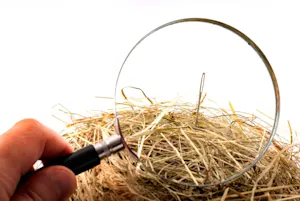What Makes This Word Tick
"Achene" is a simple word with a botanical twist! It's a type of dry fruit that doesn't open to release its seed. Think of it as nature’s little treasure chest, often seen in sunflowers. It's a handy term for both amateur gardeners and professional botanists.
If Achene Were a Person…
If achene were a person, it would be that quiet friend who keeps secrets. They would have a subtle charm and give off an air of mystery—always intriguing, compact, and holding something precious inside.
How This Word Has Changed Over Time
The term "achene" hasn't roamed too far from its roots. Originating from botanical Latin in the 19th century, it's had a steady journey in the science world without much alteration. It’s like that timeless piece of clothing that never goes out of style in specialized circles.
Old Sayings and Proverbs That Use Achene
Achenes might not have their own saying, but if they did, perhaps it would be something like, "Great things come in small packages," emphasizing the hidden value within its modest exterior.
Surprising Facts About Achene
Did you know that strawberries aren’t technically berries? Those little seeds on the outside are actually achenes. Each one is a tiny fruit with a seed inside, showcasing Mother Nature’s ability to surprise with little quirks.
Out and About With This Word
You might hear "achene" cropping up (pun intended) in gardening circles or nature walks. It's a word steeped in the intricate world of plant biology, fascinating those who have a penchant for flora.
Pop Culture Moments Where Achene Was Used
While "achene" might not have hit the big screen or snagged a pop song title, it could be a quirky episode topic on a nature documentary series. Think "Planet Earth," with a close-up on a dandelion’s evolution.
The Word in Literature
You won't find "achene" staring in a romance novel, but it often gets guest appearances in botanical textbooks and field guides. It’s a darling of the detail-oriented narrators of the plant kingdom.
Moments in History with Achene
Imagine pioneers exploring the New World, documenting plants along the way. The discovery of diverse plant species surely made achenes a secret star in the realm of early botanical studies.
This Word Around the World
Different cultures have their own names for it, yet the concept remains—a tiny dry fruit containing the essence of life. It's a perfect example of how nature’s designs transcend languages.
Where Does It Come From?
Derived from the Greek "a" (without) and "chainein" (to gape or open), "achene" literally means a fruit that doesn't open. It’s like a tiny treasure chest that keeps its contents close.
How People Misuse This Word
People sometimes confuse achenes with seeds directly, but remember—a seed sits inside an achene. It's a vital distinction for the plant-savvy.
Words It’s Often Confused With
Seed: Unlike a seed, an achene is the fruit containing the seed.
Berry: Although achenes can be found on strawberries, which are often misclassified as berries.
Pod: Pods open to release seeds; achenes do not.
Additional Synonyms and Antonyms
Though achenes don't have direct synonyms, they do have botanical relatives like nutlets. For antonyms, think of dehiscent fruits—those that split open.
Want to Try It Out in a Sentence?
"Each tiny bump on the strawberry is an achene, silently guarding the seeds within."
















